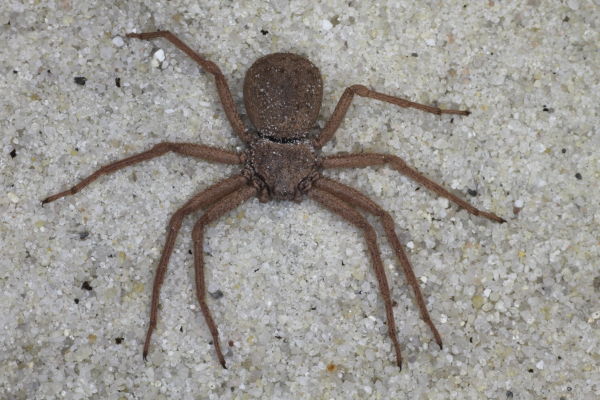References
Araneae: spiders. 2013. Insects and their Allies. <URL:
Binford, G.J., M. Callahan, M. Bodner and M. Rynerson. 2008.
Phylogenetic relationships of Loxosceles and Sicarius spiders
are consistent with Western Gondwanan vicariance. Molecular
Phylogenetics and Evolution 49: 538-553.
Definition of Sicarius. 2013. WordAZ. <URL:http://www.wordaz.com/sicarius.html>
Accessed 6 Apr. 2013.
Duncan, R.P., K. Autumn and G.J Binford. 2007. Convergent setal
morphology in sand-covering spiders suggests a design principle
for particle capture. Proceedings Of The Royal Society B:
Biological Sciences 274: 3049-3056.
Loening, N.M., Z. Wilson, P.A Zobel-Thropp and G. Binford. 2013.
Solution structures of two homologous venom peptides from
Sicarius dolichocephalus. Plos One 1: 1-10.
Magalhaes, I.L., A. Brescovit and A. Santos. 2013. The six-eyed
sand spiders of the genus Sicarius (Araneae: Haplogynae:
Sicariidae) from the Brazilian Caatinga. Zootaxa 3599: 101-135.
Newlands, G., P. Atkinson. 1988. Review of southern African
spiders of medical importance, with notes on the signs and
symptoms of envenomation. South African Medical Journal 73:
235-239.
Overview of the Class Arachnida. 2012. General Entomology. <URL:
Richardson-Boedler, C. 1999. Sicarius (Six-Eyed Crab Spider): A
homeopathic treatment for Ebola haemorrhagic fever and
disseminated intravascular coagulation? British Homeopathic
Journal 88: 24-27.
Sicarius spider. 2012. Real Monstrosities. <URL:
Six Eyed Sand Spider. 2013. Animal Corner.
Zobel-Thropp, P.A., A.E Kerins and G.J Binford. 2012.
Sphingomyelinase D in sicariid spider venom is a potent
insecticidal toxin. Toxicon 3: 265-271.
To go back to the home page, click here. To see my contact page, click here.
